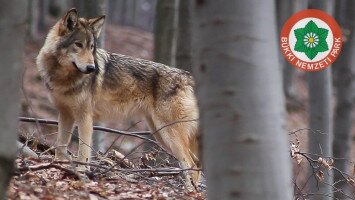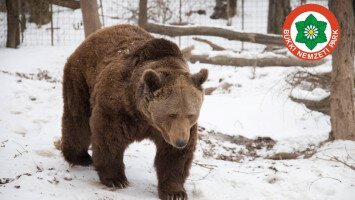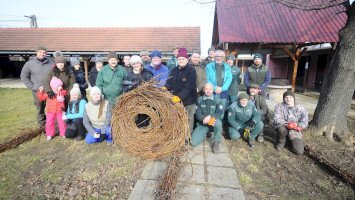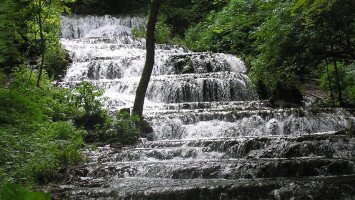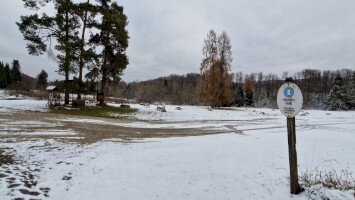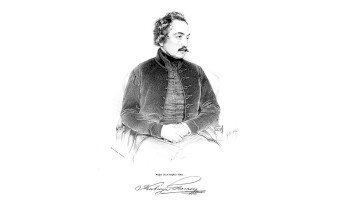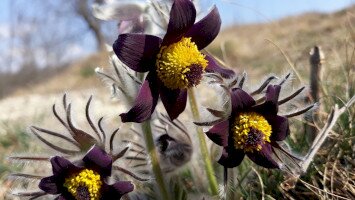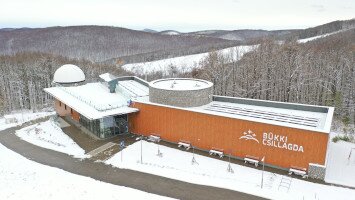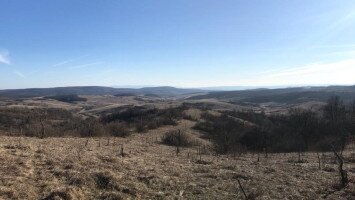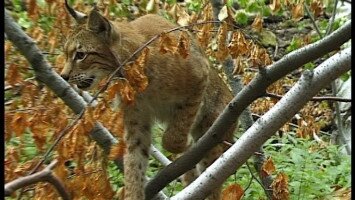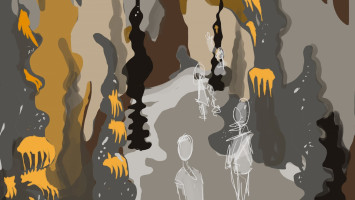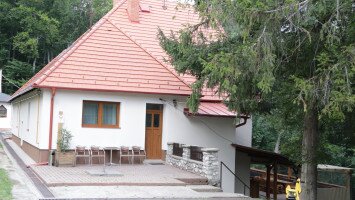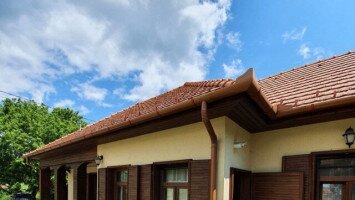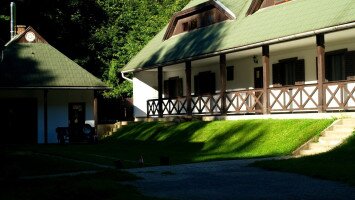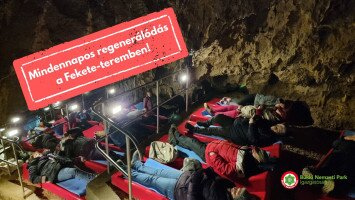
3 Eine Tour zum Virgin-Forest in Szilvásvárad / A guided tour into the Virgin Forest in Szilvásvárad
- Értékek
- 3 Eine Tour zum Virgin-Forest in Szilvásvárad / A guided tour into the Virgin Forest in Szilvásvárad
Marei
An einem Samstagmorgen, dem 22. Oktober 2022, ging es früh los, um an einer ganz besonderen Wanderung teilnehmen zu können. Mit etwa dreißig Personen machten wir uns von Répáshuta zu Fuß auf den Weg zum sogenannten „Virgin-Forest“. Das bedeutet konkret, dass dieser Wald beziehungsweise ein bestimmtes Waldgebiet seit einer Zeitspanne von mehreren hundert Jahren nicht von Menschen berührt wurde. Dieses „nicht-Berühren“ ist natürlich nicht wortwörtlich zu nehmen, sondern meint, dass seit besagter Zeitspanne kein Mensch in das Wachstum und die Entwicklung dieses Waldgebietes eingegriffen hat. Die besondere Bedeutung eines Virgin-Forests liegt nicht nur in der Unberührtheit, sondern auch in der damit einhergehenden hohen Biodiversität. Nicht nur die Pflanzen selbst sind teilweise stark geschützt und selten, sie bieten auch Lebensraum für viele seltene tierische Spezies. Daher darf der Virgin-Forest im Bükk-Nationalpark nur auf speziellen Touren betreten werden, die von Ranger:innen geleitet werden, und ist zudem mit Schildern ausgewiesen sowie eingezäunt.
Begleitet haben uns auf dieser Wanderung auch zwei weitere UNESCO-Naturfreiwillige aus dem Kiskunság Nationalpark, die dabei nicht nur den Virgin-Forest, sondern auch die Waldgebiete von Répáshuta, Nagyvisnyó und Felsőtárkány kennenlernen konnten. Besonders eindrucksvoll waren Karstformationen wie die Dolinen und der unterschiedlich geschichtete, für den Bükk charakteristische Kalkstein, auf die uns der Ranger Attila Bartha hinwies. Anschließend ging es für uns noch auf die sogenannte „Jüdische Wiese“. Diese erhielt ihren Namen durch ihren früheren jüdischen Besitzer und die ursprüngliche Nutzung als Marktplatz, auf dem vor allem viele jüdische Personen ihre Produkte angeboten haben. Heute ist diese Wiese ein strenges Naturschutzgebiet, das Besucher:innen auf eigene Faust betreten dürfen. Nach mehreren Stunden spannender Wanderung überraschte uns der Regen glücklicherweise erst auf den letzten Metern.
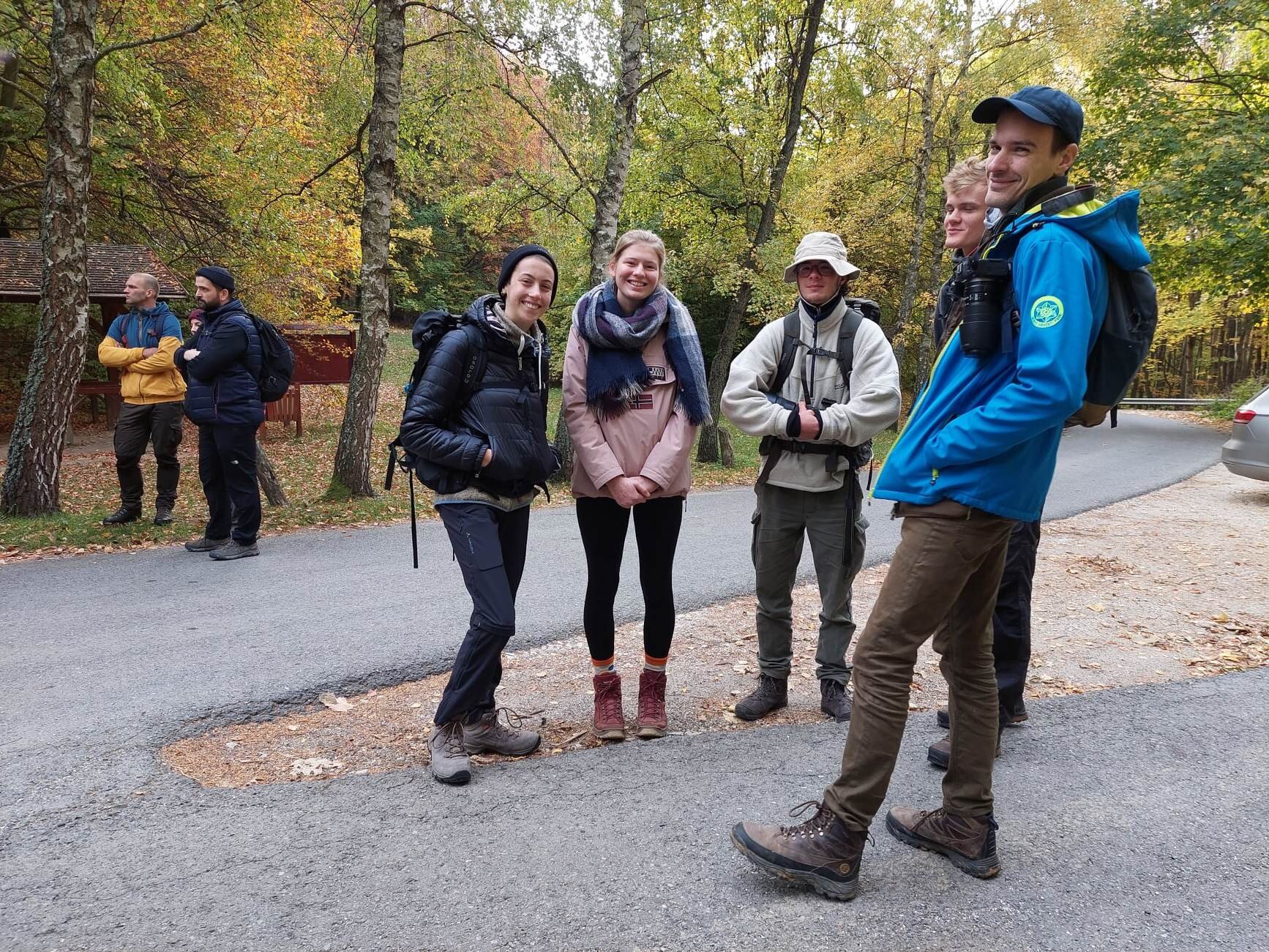
Kapcsolódó

